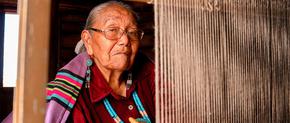The views expressed in our content reflect individual perspectives and do not represent the official views of the Baha'i Faith.
As a Baha’i, I’ve fasted every year since I was fifteen years old, but this year I’m putting more effort into fasting more mindfully.
In the Baha’i Faith, the Fast is a nineteen-day period where all Baha’is above the age of fifteen (with some exceptions, such as pregnant or nursing mothers, those over 70, or people who are ill), refrain from eating or drinking during the daylight hours.
Shoghi Effendi, the Guardian of the Baha’i Faith, explained it like this:
The fasting period, which lasts nineteen days starting as a rule from the second of March every year and ending on the twentieth of the same month, involves complete abstention from food and drink from sunrise till sunset. It is essentially a period of meditation and prayer, of spiritual recuperation, during which the believer must strive to make the necessary readjustments in his inner life, and to refresh and reinvigorate the spiritual forces latent in his soul. Its significance and purpose are, therefore, fundamentally spiritual in character. Fasting is symbolic, and a reminder of abstinence from selfish and carnal desires. – Shoghi Effendi, Principles of Baha’i Administration, p. 9.
For Baha’is fasting is a spiritual law—but also a profoundly personal experience. No one comes to check if you are, in fact, fasting—and no one shames you if you are not able to fast. Instead of feeling like penitence, the Fast feels like a long event, and an exciting and challenging one. It really is a joyful time, even if you don’t have the privilege of being surrounded by other people who are fasting.
The experience is vastly different for everyone, of course. How it takes shape in your life depends largely on your own circumstances. Things that might seem challenging to others might be easy for you, and things that seem to be easy for everyone might be incredibly challenging for you.
But in my experience, as a person who can barely go more than two hours without snacking most days, it’s invigorating to realize how much power the soul has over the body when we set a spiritual goal. I would be terrible at dieting, but when it comes to the Fast, even the most challenging times aren’t nearly as difficult as I might have imagined. Only when we focus on our spiritual purpose do we realize how much power exists within each one of us:
… this physical fast is a symbol of the spiritual fast. This Fast leadeth to the cleansing of the soul from all selfish desires, the acquisition of spiritual attributes, attraction to the breezes of the All- Merciful, and enkindlement with the fire of divine love. – Abdu’l-Baha, Selections from the Writings of Abdu’l-Baha, p. 70.
But while the Fast in itself creates a powerful experience, there is so much more we can unpack when we start to reflect on what we’ve learned through fasting.
Fasting made me realize how much time of each day I spend thinking about food, preparing food, eating food, and cleaning up after food. Of course, keeping ourselves fed is an important part of life … but is it possible that, in our comfortable lives full of abundance, many of us have given it more importance than it needs? I’m not saying that it’s bad to spend time on food—in fact, it’s an art that should certainly be celebrated. But it’s important to reflect on the abundance we have at our fingertips—and how this lifestyle isn’t widely available. Millions of people around the world survive on very simple meals, because they don’t have access to anything else, and millions more are dying of starvation.
When I lived in the southern hemisphere, where the Fast takes place in one of the last scalding months of summer, refraining from drinking water during the day was quite a challenge. I had to seriously think about how much walking I was going to do, to avoid putting myself in a situation where I would have to break the Fast for the sake of my health. It made me more aware of the privilege I have as a person who doesn’t have to do heavy physical labor every day—and how lucky I am to live in a place with easy access to water:
All praise be unto God, Who … enjoined on them the Fast that those possessed of means may become apprised of the woes and sufferings of the destitute. – Baha’u’llah, quoted in The Importance of Obligatory Prayer and Fasting, # II.
This year, I’ve been thinking about my goals for a while, leading up to the Fast. Because it’s about more than just refraining from eating and drinking during the day—it’s supposed to be a time of spiritual growth. So I’ve decided to make a few adjustments that might help me be more mindful of the purpose behind what I’m doing. (Please bear in mind that these are only some ideas I have for myself, based on my own strengths and weaknesses.)
I’ve been analyzing the types of meals I have during this time. What if I decreased the amount of complicated, ridiculously-delicious dishes I normally try to have during this period, and instead attempt to develop the ability to enjoy the beauty of a simple, healthy meal?
What if I made sure to read more stories about Baha’u’llah and Abdu’l-Baha’s life each day, to put myself in a more spiritual mindset, and appreciate the sacrifices they made?
I’ve even started to think about putting extra effort into looking nice. This might seem counterproductive to the goal of not thinking about material things, but I don’t mean wearing fancy makeup, clothes or jewelry … rather, being fresh, organized and clean. I think it might help me transcend laziness and discover the spiritual side of how I address my appearance.
These ideas are personal, of course, but the Fast represents a time when we can evaluate our personal strengths and weaknesses, and see how we can grow. The important thing is to not go through the basic logistics of Fasting without reflecting on its deeper purpose properly. That way, I can constantly remind myself of why I’m fasting, and better appreciate the spiritual implications of everything I do every day.
Next year, I might have different goals. But starting now, I’m going to try to be more mindful. And whether you’re fasting or not, this is a perfect time to learn more about the spiritual side of being human, and set in motion efforts to help our souls grow.
Fasting is the cause of awakening man. The heart becomes tender and the spirituality of man increases. This is produced by the fact that man’s thoughts will be confined to the commemoration of God, and through this awakening and stimulation surely ideal advancements follow. – Abdu’l-Baha, Star of the West, Volume 3, p. 305.

















Comments
Sign in or create an account
Continue with Facebookor